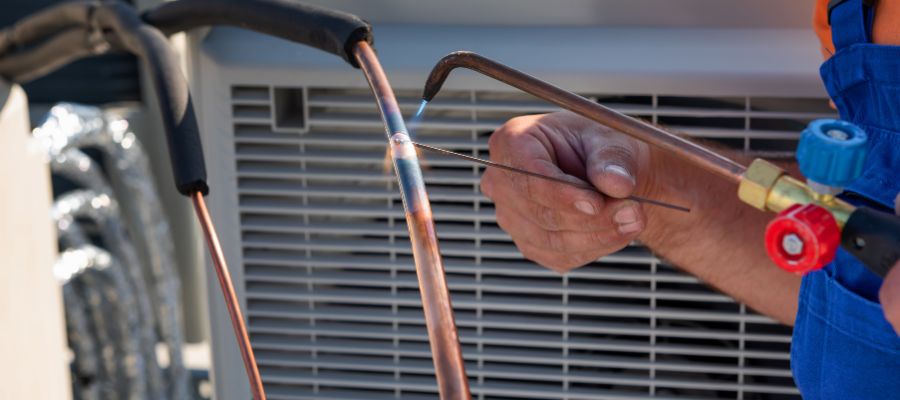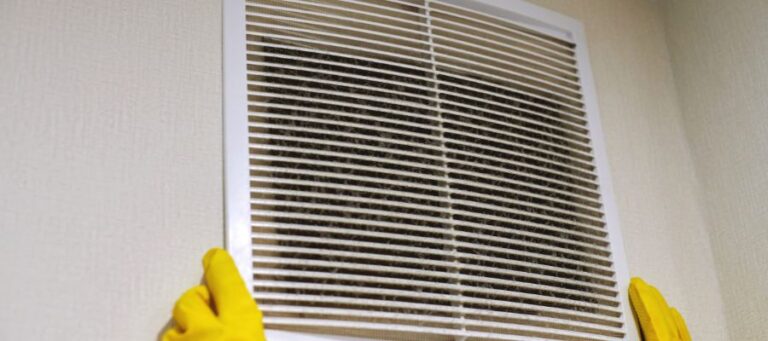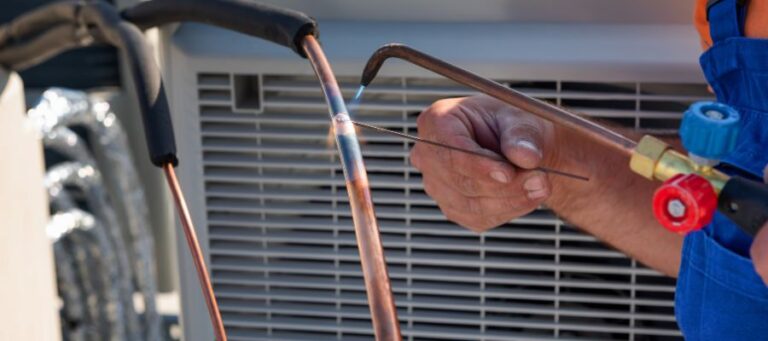

HVAC Services
Get Professional Repairs From The Area's Trusted HVAC Technicians. Ask About Our Services! We Offer Professional Heating & Cooling System Repairs And Guarantee Long-Lasting Results.
Got Question? Call us: (850) 678-2665Financing
The Comprehensive Guide to HVAC Systems and Their Impact on Indoor Air Quality

HVAC systems have become a cornerstone of modern life, playing an essential role in creating comfortable and livable indoor environments. But did you know they also significantly impact indoor air quality? This guide will dive into the details of HVAC systems and how they affect air quality.
Understanding HVAC Systems: The Basics
An HVAC system, short for Heating, Ventilation, and Air Conditioning, is integral to controlling the temperature, humidity, and air quality in residential and commercial environments. These systems consist of a variety of components, including air conditioners, heat pumps, furnaces, and ventilation systems.
Types of HVAC Systems
There are several types of HVAC systems, including:
- Central heating and cooling systems
- Ductless, mini-split systems
- Geothermal heat pumps
- Forced air systems
Choosing the right HVAC system depends on a variety of factors, such as the size of your home or building, your local climate, and your energy efficiency goals.
HVAC Systems and Air Quality
One of the crucial roles of an HVAC system is maintaining air quality. Here’s how:
Air Filtration
HVAC systems often use air filters to reduce the concentration of indoor air pollutants. These filters trap particles like dust, pollen, and mold spores, preventing them from circulating in the air. High-efficiency filters, such as HEPA filters, can trap even smaller particles, including some bacteria and viruses.
Ventilation
Proper ventilation helps reduce indoor air pollutants by replacing stale indoor air with fresh outdoor air. Ventilation systems can also control humidity levels, which can impact the concentration of some indoor air pollutants.
Humidity Control
HVAC systems also manage humidity, affecting indoor air quality. High humidity levels can promote the growth of mold and dust mites, while low humidity can cause dry skin and respiratory problems.
Allergen and Smoke Removal
Advanced HVAC systems may include additional features like allergen removal and smoke filtration. These systems use specialized filters or air purifiers to remove specific pollutants from the air.
Advanced HVAC Technology
With advancements in technology, HVAC systems have become more efficient and better equipped to manage indoor air quality.
Smart HVAC Systems
Smart HVAC systems, often connected to other smart home devices, allow users to control their HVAC systems remotely. They can also automate HVAC operations based on preset schedules, helping save energy and maintain optimal indoor air quality.
IoT in HVAC
The Internet of Things (IoT) has introduced new possibilities for HVAC systems. IoT-enabled HVAC systems can monitor indoor air quality in real-time, alerting you to potential issues and even adjusting operations automatically to improve air quality.
Energy-Saving HVAC Technology
Energy efficiency is a significant concern with HVAC systems. New technologies, such as variable speed motors and heat recovery systems, have made HVAC systems more energy-efficient, reducing their carbon footprint.
HVAC Systems Maintenance and Air Quality
Regular maintenance is critical for any HVAC system. It not only extends the lifespan of the system but also ensures it is working correctly and maintaining optimal air quality.
Maintenance Tips
Regularly replace air filters to ensure they effectively trap pollutants.
Schedule regular HVAC inspections with professionals to identify and fix any potential issues.
Clean air ducts and vents to prevent dust and other particles from accumulating and affecting air quality.
Conclusion
Understanding HVAC systems and their impact on indoor air quality can help you create a healthier, more comfortable indoor environment. By choosing the right system, using advanced technology, and regularly maintaining your system, you can enjoy the benefits of an HVAC system while ensuring the air you breathe is clean and healthy.
This comprehensive guide should have equipped you with the necessary information about HVAC systems and their relationship with air quality. Remember, clean air is not a luxury; it’s a necessity, and with the right HVAC system, it’s entirely achievable.



